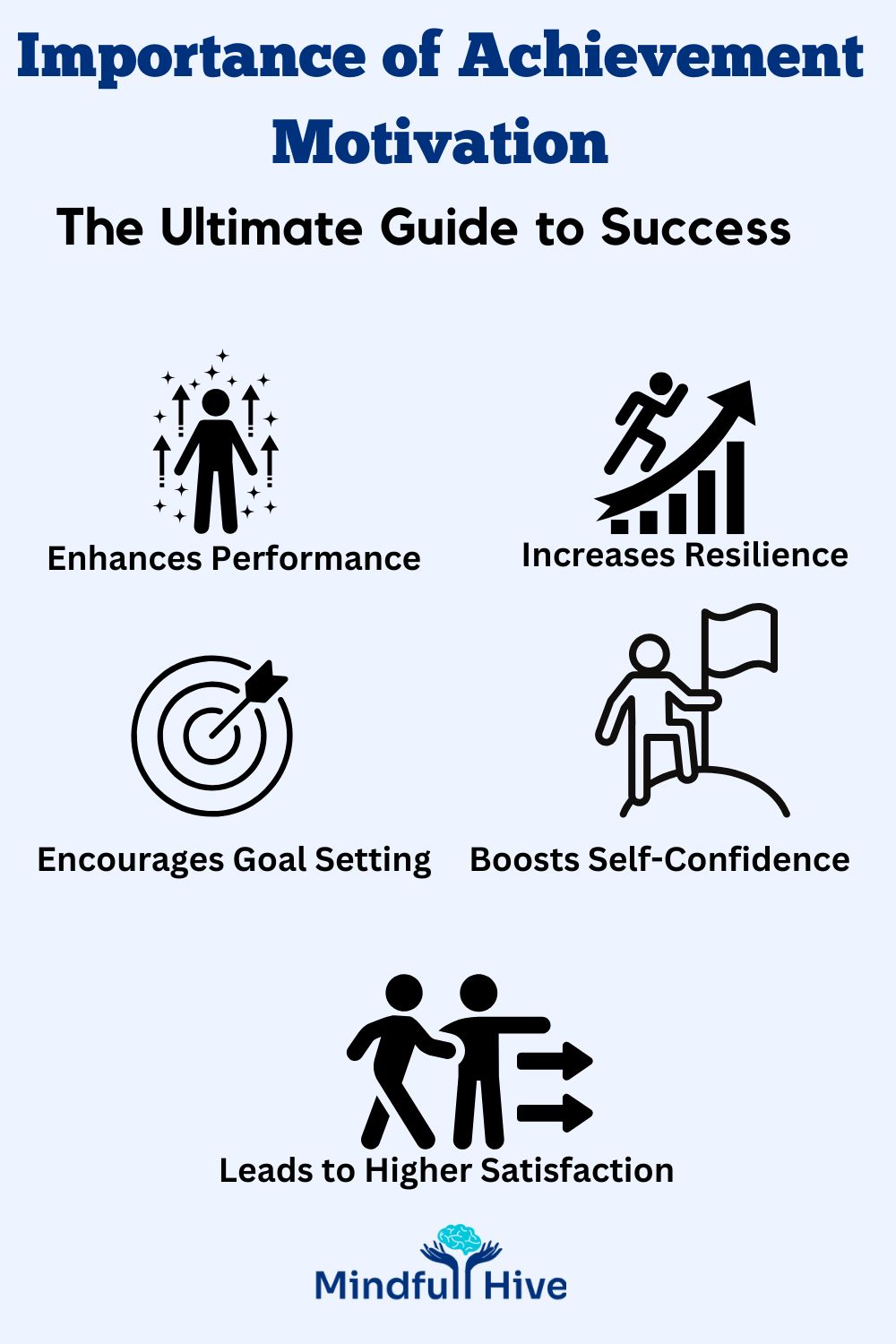Have you ever wondered why some people are driven to succeed while others struggle to stay motivated? The secret often lies in achievement motivation. Understanding this concept can help you unlock your full potential, whether in your career, education, or personal life.
I’ve personally struggled with motivation in various areas of my life. Whether it was trying to improve my fitness, grow my career, or develop a new skill, I often felt stuck. However, once I understood achievement motivation, everything changed. By applying the right strategies, I turned my procrastination into productivity and started seeing real progress.
In this guide, I will share everything you need to know about achievement motivation, including its types, importance, psychological theories, and effective strategies to develop it. Plus, I’ll share my personal experiences to make it even more relatable!
What is Achievement Motivation?

Achievement motivation refers to the inner drive that pushes individuals to set and achieve goals. It is the force behind ambition, persistence, and the willingness to overcome challenges. Psychologists define it as a combination of intrinsic motivation (internal rewards like self-satisfaction) and extrinsic motivation (external rewards like money, recognition, or promotions).
If you’ve ever worked tirelessly towards a goal—whether mastering a skill, excelling in sports, or growing a business—you have experienced achievement motivation firsthand.
The Psychology Behind Achievement Motivation
In psychology, achievement motivation is often linked to the Self-Determination Theory (SDT), which suggests that people are motivated by three basic needs:
- Autonomy – The need to have control over one's actions.
- Competence – The need to feel skilled and capable.
- Relatedness – The need to connect with others and feel a sense of belonging.
I remember when I started my own business, I felt lost at first. But my strong drive for success kept me going. I set clear milestones and focused on developing my skills. The feeling of seeing progress gave me an immense boost in confidence and kept me pushing forward.
People with high achievement motivation have a strong drive for success, an achievement-oriented mindset, and a deep desire to measure their progress using success measurement metrics.
Types of Achievement Motivation
Achievement motivation can be categorized into two main types:
Intrinsic vs. Extrinsic Motivation
Intrinsic Motivation
This type of motivation comes from within. You strive for personal satisfaction and self-improvement rather than external rewards. Intrinsic motivation examples include:
- Pursuing a hobby for enjoyment
- Studying a subject out of curiosity
- Setting personal development goals
I’ve always been passionate about writing. Even when no one was reading my work, I kept writing because I enjoyed the process. That’s the power of intrinsic motivation—doing something purely for the love of it.
Extrinsic Motivation
This is driven by external factors such as money, grades, awards, or social recognition. Examples include:
- Working hard for a promotion
- Studying to get a scholarship
- Training for a competition to win a medal
While intrinsic motivation is powerful, extrinsic motivation has its place too. I remember working long hours at my job, not just because I loved the work, but because I wanted to earn a bonus. The external reward pushed me to go the extra mile.
Both types are essential, but balancing them is key to maintaining long-term motivation.
Importance of Achievement Motivation
Having a strong drive for success can impact every aspect of life. Here’s why achievement motivation matters:
- Enhances Performance – Motivated individuals set clear personal development goals and achieve better results in their careers and studies.
- Increases Resilience – When faced with setbacks, motivated individuals find ways to adapt and keep moving forward.
- Encourages Goal Setting – The goal-setting process is a crucial part of success, and motivation keeps you focused.
- Boosts Self-Confidence – Reaching goals increases self-belief and helps individuals tackle bigger challenges.
- Leads to Higher Satisfaction – A sense of accomplishment contributes to overall happiness and fulfillment.
When I trained for my first marathon, I doubted myself. But every small milestone—running 5 miles, then 10—gave me the confidence to keep going. That’s the power of achievement motivation!
Achievement Motivation Strategies
Now that you understand the importance of motivation, let’s explore some strategies to strengthen it.
1. Set SMART Goals
The most effective way to stay motivated is to set Specific, Measurable, Achievable, Relevant, and Time-bound (SMART) goals. For example:
- Instead of "I want to get fit," set a goal like "I will work out for 30 minutes, five days a week for the next two months."
When I wanted to improve my productivity, I set a goal to write 1,000 words a day. Tracking my progress kept me accountable and helped me stay motivated.
2. Develop a Growth Mindset
A growth mindset means believing that your abilities can improve with effort. Embracing challenges and learning from failures will keep you motivated.
I used to be afraid of failure, but once I started seeing every mistake as a learning opportunity, I became more resilient. Now, I welcome challenges because I know they make me stronger.
3. Use Positive Reinforcement
Rewarding yourself for small achievements can boost motivation. It could be as simple as enjoying a break after completing a task or treating yourself to something special.
When I finish a big project, I always celebrate—whether it’s with a small treat or a day off. These rewards keep me excited for the next challenge.
FAQs About Achievement Motivation
1. How does achievement motivation impact success?
Achievement motivation drives individuals to set goals, overcome obstacles, and continuously improve, which leads to long-term success in various fields.
2. Can achievement motivation be developed over time?
Yes, by practicing goal setting, developing a growth mindset, and using motivational strategies, anyone can cultivate achievement motivation.
3. What is the difference between intrinsic and extrinsic motivation?
Intrinsic motivation comes from internal satisfaction, while extrinsic motivation is driven by external rewards like money, grades, or recognition.
4. How do I stay motivated when facing setbacks?
Reframe failures as learning opportunities, take breaks when needed, and remind yourself of your long-term vision.
H3: 5. Why is goal setting important for achievement motivation?
Setting clear and realistic goals provides direction and purpose, helping you stay focused and motivated to accomplish tasks.
Quick Tips for Staying Motivated
Tip 1: Break Goals into Smaller Steps
Large goals can feel overwhelming. Divide them into smaller, manageable tasks to stay motivated.
Tip 2: Visualize Success
Take a few minutes each day to imagine yourself achieving your goals. Visualization strengthens motivation and confidence.
I once struggled with public speaking. But before each talk, I visualized myself delivering a great presentation. It made a world of difference!
Conclusion
Achievement motivation is the key to success in both personal and professional life. By understanding its types, importance, and strategies, you can develop a powerful mindset that drives you toward your dreams.
Start applying these strategies today, and watch how motivation transforms your life! If I could overcome self-doubt and reach my goals, so can you.











